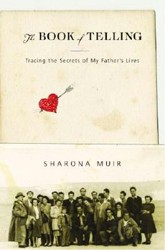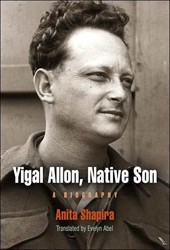This almost two-inch thick tome is filled with Israeli history and the influence upon it by one of Israel’s greatest leaders. Although the author unfortunately never interviewed Sharon, the book vividly conveys the situations involved and the unbelievably strange personality of its subject. Author David Landau, a British-born journalist, lives in Jerusalem. He is familiar to many Americans as the Israel correspondent for The Economist.
As Landau tells the story, Sharon emerges as an unlikely hero. In early combat he collapsed under stress and led his troops from the rear. Among other pressures, he bore the guilt for the hideous Lebanon massacre. He was harsh, ready to kill Arabs house by house. He was devious, a habitual liar, on one occasion inviting Jordanians to eat and then kidnapping them. In personal relationships and in his military career Arik suffered from one glaring inadequacy: “People tend to feel you’re not a decent human being,” one superior told him. The book implies that Sharon’s tough-guy image stems from his driven childhood on his early Israeli pioneer farm.
What a hero! But hero he became, as he developed greater military skills and used them to huge advantage in the Yom Kippur War, turning defeat into victory. “King of Israel” Landau calls him — “arrogant, manipulative, a master of self-promotion,” says the author. But he was worshipped by his fellow-citizens.
The future lay in politics, but Sharon’s bruising style brought frustration to his colleagues and to his American allies. A champion of the settlement movement, Arik found members of Peace Now to be “close to the PLO murderers.” Finally, after rough political warfare Sharon rose to the premiership. Here his administration took the historic step of yielding the Gaza Strip and some of the West Bank to the Palestinians. His countrymen were divided in their reaction, but both sides were furious in their response. It was during this uproar that Sharon had a small stroke, which under inadequate medical care, developed into a massive stroke.
Readers looking for fast-moving popular literature will not find it here. Mr. Landau’s thorough, exhaustive work includes many pages which serve merely as background for a Sharon problem. This is, of course, a notable book that belongs in all serious libraries and bookstores and on college reading lists, particularly those that are Jewish-oriented. Appendix, bibliography, illustrations, index, interviews, notes, photographs, preface.
Related content:





